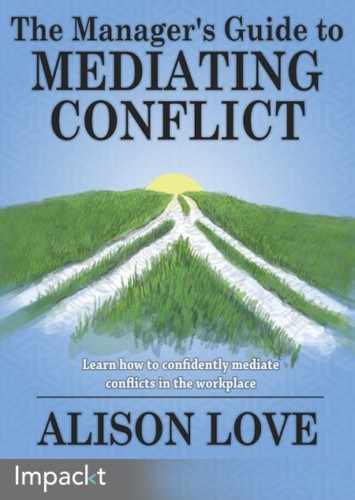There is no hard and fast rule about who goes first, but generally if there is one party who appears to be the aggrieved, I would suggest they go first. For example, if a grievance has been raised or there is a threat to do so by one party, then I would ask them to go first. I would also have an eye on the balance of power (or perceived balance of power) and where that may be an issue, I would ask the more junior or less powerful employee to go first.
Whatever your decision, it is important to make it clear to the parties at an early stage who you will ask to start with an opening statement so that they are aware of this; you certainly want to avoid this being a surprise once all parties are together. Ideally, clarify this during the pre-mediation discussions or at the individual sessions at the start of the day.
During this phase of the process, it is very important that while one person is speaking, the other party remains silent. This is sometimes referred to as "uninterrupted time."
The other person may have to fight the desire to jump in to clarify things they have heard or to raise a question and you can see that it is sometimes difficult for people to keep quiet. It is, however, a very important part of the process and if necessary, you need to control and enforce this. In my experience, this is quite rare but you do need to be ready to intervene if need be.
I believe that it is important that each party has this uninterrupted time for the following reasons:
- It allows parties (possibly for the first time) to relay the issues in whatever way they want to and to say what they think and feel without being interrupted.
- It encourages the other party to really listen; it may prevent the other party from thinking (or at least quite so much) about their response or next question rather than listening to what is being said and to suspend this while the other person is speaking.
- It may be the first time that one of the parties has heard things from the other person directly and to get any understanding of the background or how things are impacting on the other.
- It sets the tone for each party to respect and listen to the other throughout the mediation process.
When the first person has completed their opening statement, you invite the other party to make their statement with the same rules regarding "uninterrupted time."
Once both parties have completed their opening statements, my practice is to sum up what you have heard from both. This demonstrates that you have listened to what has been said and expressed. It is also a good opportunity to:
- Draw any common threads together: For example, while parties may be stating different causes for issues, they will often refer to similar consequences, such as a communication breakdown, stress and impact on health, or impact on the business. They may also express a desire for a common outcome such as a return to work or an improved relationship. It is helpful to identify these.
- Identify the issues identified by both: This is a summary of the main points referred to by both, highlighting those where there is some commonality and those where there is a different viewpoint. This can start to help to narrow the issues and agree a structure of which issues are to be explored.
- Positively reframe the issues that have been stated: For example, if one party has stated that they feel totally excluded, this could be reframed as "the concern is that you do not feel included."
- Identify, if possible, the gap between them: In the example mentioned, the gap might be how much information, consultation, and inclusion is realistic and appropriate in the circumstances, and what needs to be and can be done to ensure a feeling of inclusion.
Once you have summarized the issues, you can choose how to best proceed from that point on. If you feel it necessary, you can separate the parties and discuss the issues with them separately, obtaining their reactions to what they have heard, and identifying any areas of common ground. In practice, I would only do this if absolutely necessary. For example, I have had situations where one party has been totally shocked by what they have heard and needed some time to digest and understand it.
Wherever possible, I would suggest that you keep the parties together so that you can facilitate a discussion on the points raised with everyone present. If you do proceed in this way, it is helpful to propose some sort of structure to the discussion and agree this with the parties.
